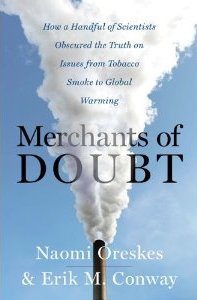Rep. Aaron Schock has abruptly resigned following a cascade of questions about funding and spending by him and his office.
Congressional ethics and federal campaign finance rules can be arcane and complicated. I tend not to be deeply concerned by the occasional mini-scandals that erupt when members of either party run afoul of some more technical aspect of those laws. Yes, they ought to know better — lawmakers should know the law, or should at least know enough to hire people who do, or to consult with party officials whose job it is to ensure that members follow the rules. But when some member of Congress gets in trouble for using the wrong phone line, or charging some expense to the wrong line in a ledger, I’m usually willing to give them the benefit of the doubt.
 In most such cases, the usual principle involving money and politics applies: The scandalous thing is not what is illegal, but what is accepted as perfectly legal.
In most such cases, the usual principle involving money and politics applies: The scandalous thing is not what is illegal, but what is accepted as perfectly legal.
That was my initial response to the first several stories about Aaron Schock — the flashy, young, impeccably chiseled bro-dude Republican congressman from Illinois. The first bit of news that registered with me involved the elaborate decor in his congressional office, inspired, apparently, by Downton Abbey. His staff reported that this decor and design were not at taxpayer expense, but had been donated to the congressman as a gift. But he had failed to report that gift as election law requires.
That law is good and necessary. We don’t want our elected officials beholden to donors who can buy their favor with extravagant gifts, so we tried to forbid such gifts lest they be what they seem — bribes in kind, rather than in cash. Alas, it seems we were unable to ban such bribery-in-kind outright, and the best we managed to do was to require disclosure. Gifts have to be reported so that voters and constituents can, at least, research who it is that is buying our elected officials.
And Rep. Schock, reportedly, had failed to comply with that law. That’s not good, surely, but I wasn’t inclined to get too worked up about it. Correct the error, pay the fine, don’t make a habit of it.
The problem though is that Schock apparently had made a habit of it. Worse than that, really. He hadn’t so much run afoul of election and finance law as he had failed to acknowledge its existence.
Take for example the case that seems to have been the final straw for Schock, which involved mileage reimbursement for a vehicle he used in his campaigns. The problem wasn’t the usual semi-scandalous technical problem of one or several trips misreported as campaign expenses. Schock is reported to have been reimbursed for every mile ever driven in that vehicle — and for an additional 90,000 miles beyond what its odometer reads. He wasn’t just fudging his expense accounts, he was treating them like an ATM.
And that is why, despite easily winning another term in the last election, Aaron Schock is now leaving Congress.
Some commentators say they’re still waiting for another shoe to drop in Schock’s story. They’re sure there must be other, larger, darker secrets that forced him to resign. But nothing else is needed. Schock’s reckless disregard for the law — always in the direction of personal enrichment — is cause enough for him to resign. That’s corruption. And corruption is a sufficient reason for a public official to be forced to resign.
Even here, though, the principle applies: The real scandal is not what is illegal, but what remains perfectly legal. Aaron Schock was forced to resign because he was corrupt, but 534 members of Congress remain in office and many of them are far, far more corrupt than he has ever managed to be.
Consider, for example, Sen. James Inhofe of Oklahoma. This guy:
Now, Inhofe may not be the sharpest tool in the shed, but he isn’t dumb enough to believe the nonsense he has been spouting for years about climate change. He says these things because he is paid to say these things. Inhofe says these things because he is corrupt — because the only constituents he represents in the Senate are the fossil-fuel industry donors who have funded his election and re-election for decades. The money those donors have poured into Inhofe’s campaign coffers over the years vastly outweighs the chump-change that Aaron Schock is suspected of skimming for his personal benefit.
But Inhofe’s corruption is perfectly legal. Even though the crooked senator from Oklahoma is doing far more real harm to his constituents and to his country, he isn’t breaking the law. He’s following the law — and constantly rewriting that law to ensure that what he does can never be described as illegal.
Unethical, immoral, dishonest, damaging, stupid, sinful, ignoble, dishonorable and thoroughly corrupt, yes. But not illegal.
Here’s a short promo for Merchants of Doubt, Robert Kenner’s documentary based on the book by Naomi Oreskes and Erik M. Conway.
What Kenner documents is corruption — perfectly legal corruption facilitated by thoroughly corrupt liars like Sen. James Inhofe.
Until such corruption is recognized as worse than the petty crimes of people like Aaron Schock, we’re all in big trouble.












